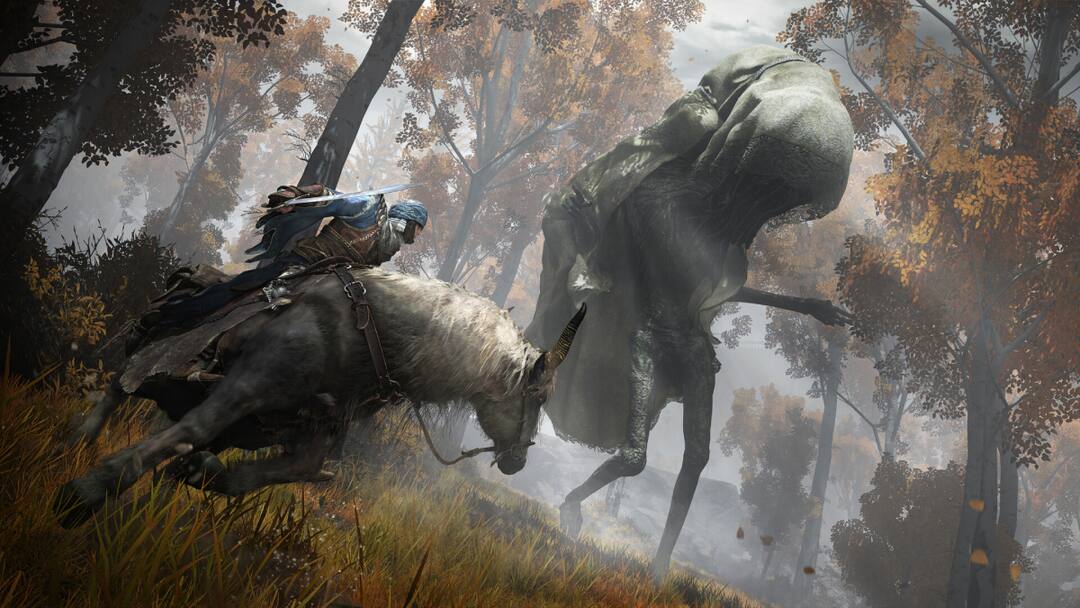Niche To Award-Winning Mainstream: How Elden Ring Made 'Souls-Like' A Household Genre
Elden Ring has found renewed interest among gamers due to its excellent Shadow of the Erdtree expansion. What makes Soulsborne games tick? Let’s find out.

Role-playing games, or RPGs in gamerspeak, have always been one of the most influential genres within the broader umbrella of the gaming world. The ability to build your own character, make your own choices, explore an expansive open world, and to experience an exhilarating story has always been part of the allure of RPGs.
Since its initial launch in 2022, Elden Ring has established itself as a titan within the genre. Its massive open world, elaborately designed classes and weapons, and brutally difficult bosses have made it a fan favourite.
The game even received the much-coveted Game of the Year Award at the 2022 Game Awards, as well as mentions in tweets of influential celebrities including a certain Elon Musk, further solidifying its impact within the world of gaming. The game was developed by FromSoftware and published by Bandai Namco.
The game also has impressive lore, created by the one and only George R. R. Martin, writer of the books behind the massively popular show, ‘Game of Thrones’. Despite its mainstream success, it is important to remember that Elden Ring isn’t the first game to incorporate the unique mechanics that people have grown to love.
The House That FromSoftware Built
Elden Ring is the product of many games that came prior. These games are not only the framework upon which Elden Ring was created but also the seed which from which an entirely new genre sprouted out.
Elden Ring’s expansion, Shadow of the Erdtree, launched recently so this is the perfect time to discuss the various failures and successes of the games that shaped the modern RPG experience and why they failed where Elden Ring succeeded.
What Is A Soulsborne Game?
Soulsborne is a title which has been coined by fans of FromSoftware’s RPG experiences. The name combines elements of Dark Souls and Bloodborne, two games made by them.
Soulsborne comprises seven games which include games like Demon’s Souls, Sekiro: Shadows Die Twice, and the latest, Elden Ring.
The term Soulsborne is used to define games created by FromSoftware which play similarly to games like Demon’s Souls and the Dark Souls series.
Some in-game features which are present within the Soulsborne category may include having limited heals that gradually increase with exploration, the loss of all in-game currency upon death, dodging, parrying, and painstakingly difficult bosses.
From Soulsborne To Souls-Like
These features, initially the cause of annoyance to players end up becoming endearing quirks that they start looking for in every game they play. This desire, and the lack of other games that fulfilled it, is what gave birth to an entirely new genre within gaming known as Souls-Like.
Just as the name suggests, this genre includes games that are similar in play style to the Soulsborne games created by FromSoftware.
A multitude of different developers got to work in an attempt to create Souls-Like experiences which would quench the thirst of eager players.
Sadly, very few succeeded.
Most Souls-Like games are innovative and put their twist on the tried and tested formula, but they fail to inculcate the spark that Soulsborne games have.
What Made Soulsborne ‘Work’?
One must remember that Soulsborne games were not always the cult classics they are today and so, it is reasonable that games that tried to mimic them were even less popular. But why were Soulsborne games not as popular as mainstream titles like Assassin’s Creed and Grand Theft Auto in the early 2010s?
This was due to the same formula that people have grown to love today.
Soulsborne games have always let the player be free within their world. The player can explore whatever area they can reach, and the story rarely restricts exploration. There are extremely random places that players sometimes need to go to in order to complete an objective and many hidden paths as well.
And throughout all this, the games give you no directions.
The game never tells you to complete a mission. There is no text on the side of the screen which details your next objective or marker which shows you your next destination.
This complete freedom can be oddly restricting to players who are not able to understand what they need to do without the game explicitly telling them. While most games guide you through their world like a nurturing parent, Soulsborne games throw their players out of the nest like a mother bird, expecting them to fly.
This means that players are often ill-equipped for enemies and bosses, unclear about where to go, and just generally confused most of the time. Extremely limited respawn and rest points further demotivate players.
What Did Elden Ring Do Differently?
Learning from its predecessor’s mistakes, Elden Ring brings with it a quality-of-life overhaul. While the game still has the freedom and randomness that veteran players love, it also has features which are welcoming to new players.
These features include a map, very frequent teleport checkpoints, easy respawn locations for most boss fights and indicators which tell players where the next checkpoint can be found.
All these features, and more, propelled Elden Ring into mainstream success. But this success has also greatly benefitted the Souls-Like genre.
More The Merrier
The evolution of technology combined with the newly founded public interest in Soulsborne games has boosted the popularity of new Souls-Like games.
Additionally, more developers are working on their own Souls-Like games. Recent Souls-Like games like Lies of P, Another Crab’s Treasure have redefined what the Souls-Like genre can be.
The combination of similar or completely different aesthetics with the Soulsborne formula has given birth to amazing games. And it doesn’t end there. Upcoming games such as Black Myth: Wukong and Flintlock: The Siege of Dawn have also piqued the interest of gamers.
Needless to say, all of this wouldn’t have been possible without the many peculiar features of the older Soulsborne games. Their impact will be felt in RPGs and the world of gaming forever.
(The author is a student of Vivekananda Institute of Professional Studies, Delhi)






































